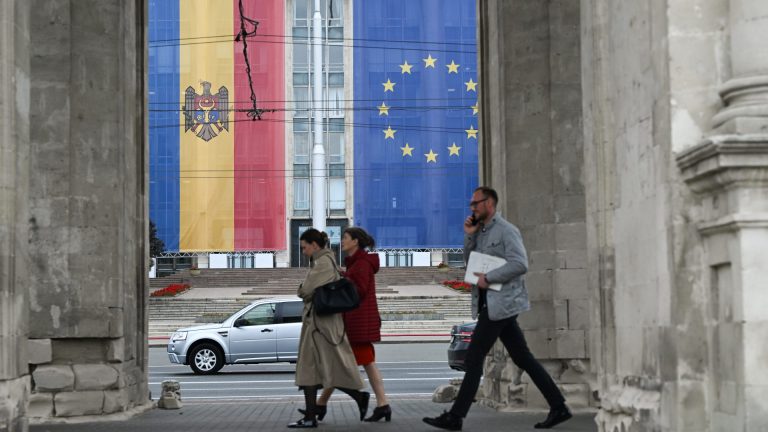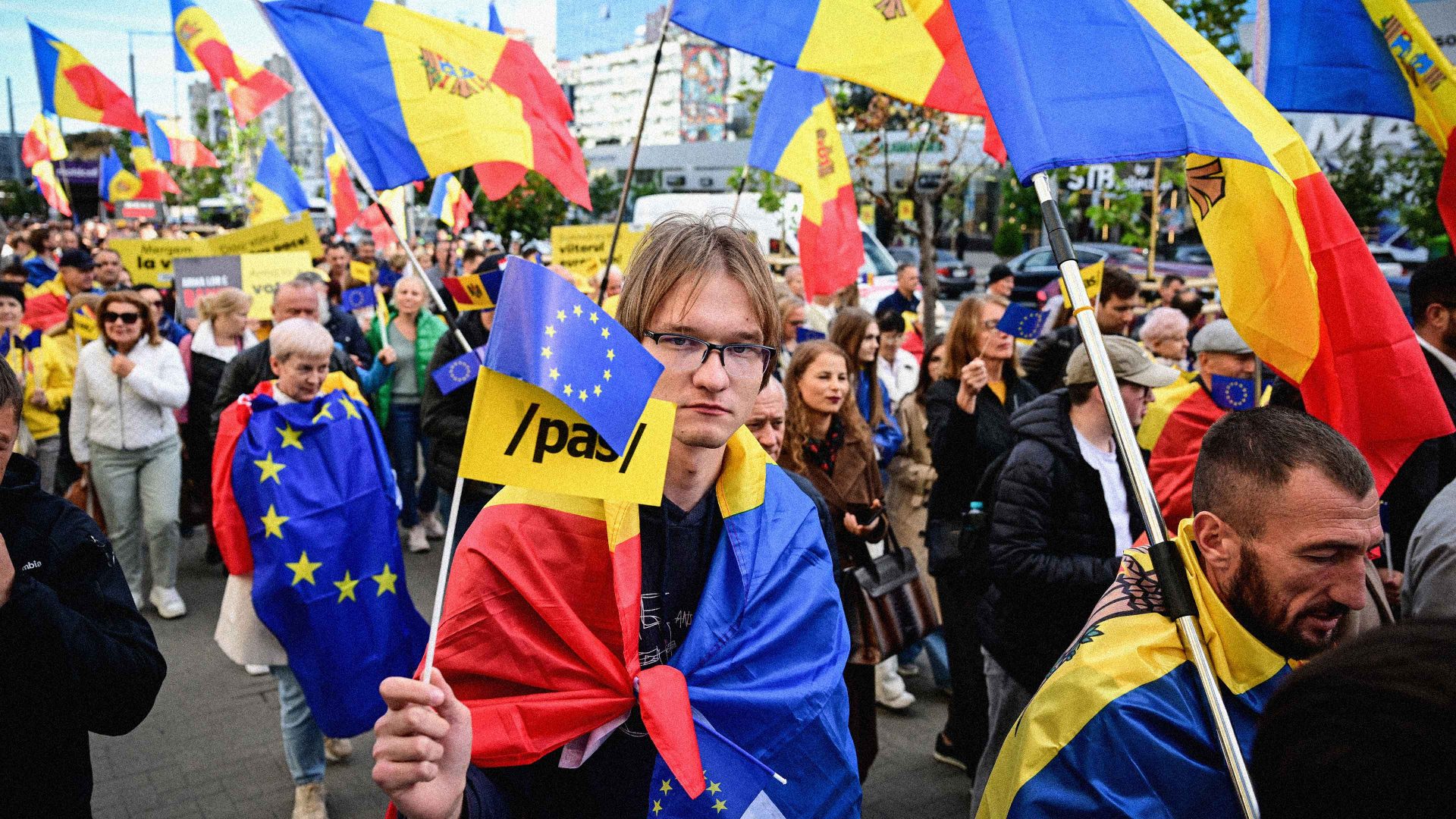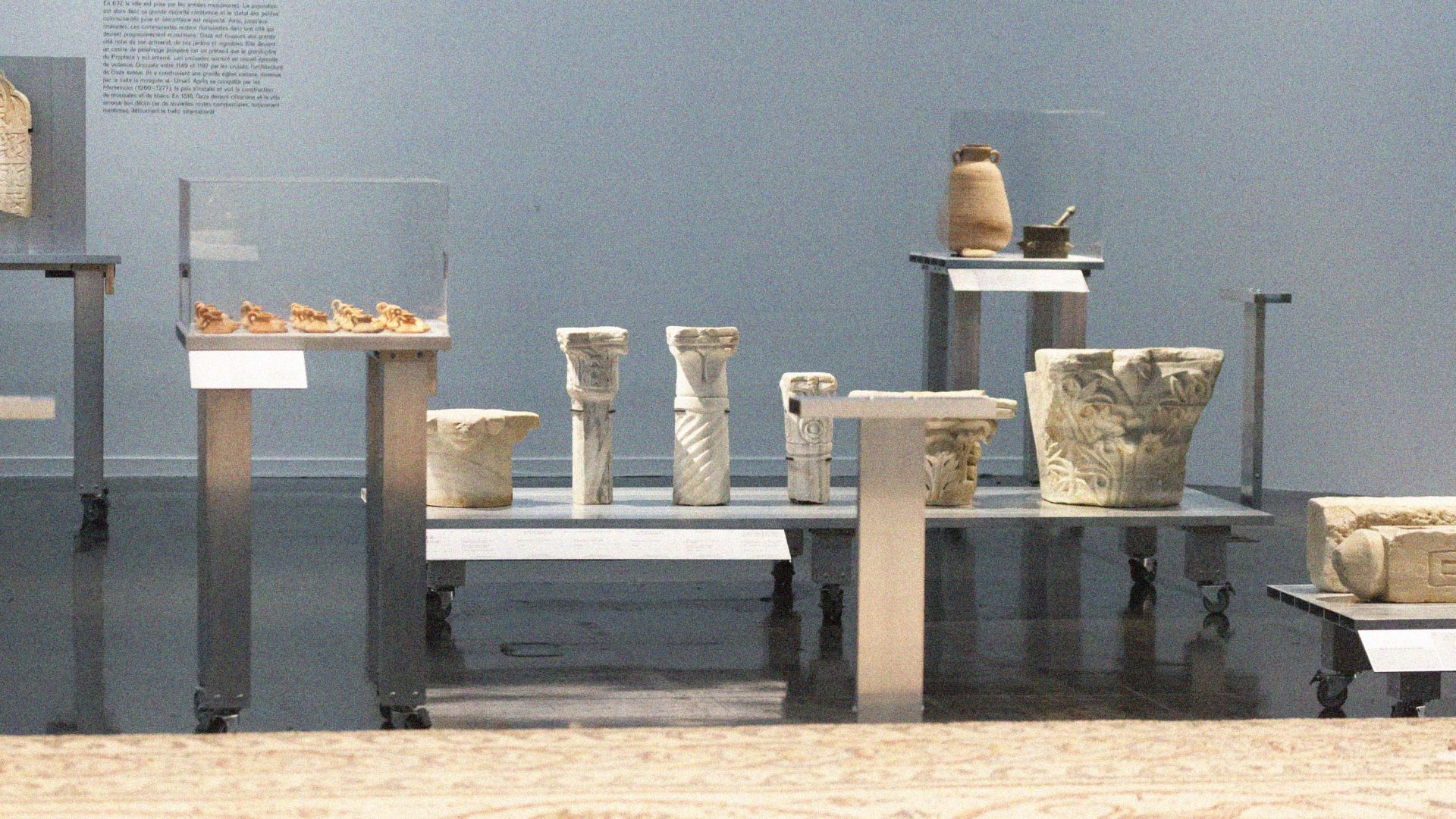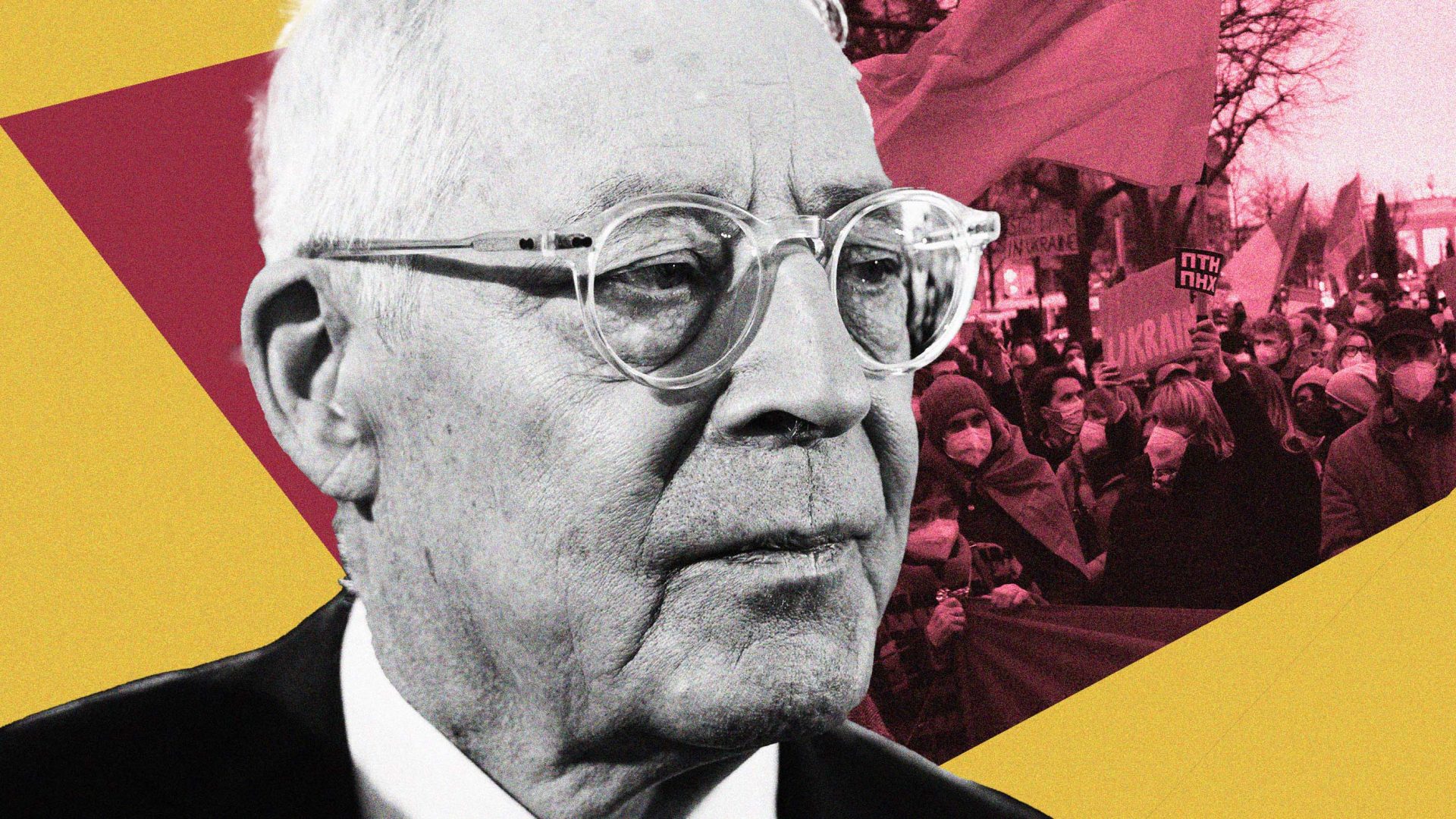On a chilly Monday in Moldova’s capital city of Chișinău, Maria stood outside the presidential palace holding a bouquet of yellow chrysanthemums. She was born not far from here, while the Republic of Moldova was still part of the USSR – born into the Moldavian Soviet Socialist Republic. Now she’s in her late middle age, with grey hair dyed a platinum blonde and cut like Princess Diana’s.
I was leaving a press conference with the newly re-elected President Maia Sandu when I met Maria. The president, who had looked visibly exhausted after casting her ballot the previous day, was smiling and composed – she spoke of Russia’s failure to undermine the elections and the public’s trust in Moldovan institutions, despite the money and effort it had expended.
Days before the election, the Moldovan authorities arrested 74 people for their alleged involvement in a plot to provoke mass riots if the election didn’t go Russia’s way. For months, there had been reports of Moldovans being recruited by pro-Russian actors to go to training camps in Serbia, where they would memorise the layouts of government buildings and learn how to provoke violence in a crowd. On election day, bomb scares were reported at polling stations in Italy, Romania, Spain, and the US, where the Moldovan diaspora would vote overwhelmingly in favour of Europe.
But all this fear and tension ended in a fizzle, not a bang. Outside the parliament building across the street from the palace, 200 or so protesters amassed at midday to cheer as pro-Russian opposition leader Igor Dodon told them in Russian that Sandu and her Party of Action and Solidarity (PAS) had stolen the election. Then he left, and the crowd streamed back towards the minibuses that had brought them.
The entire thing lasted less than 20 minutes – a Moldovan friend joked that he must be paying them by the hour. A fierce-looking old lady, part of a small group of counter-protesters encircled by police, cried out that Dodon had been eating too much from Russia, and she had come to give him an enema.
Maria, waiting patiently for Maia Sandu with her flowers, seemed somehow detached from all this. The guard, a younger woman with long blonde hair, told her that she couldn’t come into the palace. “Protocol, protocol,” she repeated apologetically – but Maria merely smiled and stayed put. After ten or 20 minutes, to my surprise, the guard gave up and ushered her in.
I spent much of my week in Moldova looking for pro-Russian voters. Headlines in the English-speaking press framed the parliamentary election as a battle for the soul of the country – would it continue on its path to European integration, or fall to Russia?
I thought I might have found one in 19-year-old Nina, who’d taken a taxi across town after work to vote before polls closed. Strikingly young and visibly tired, she was the first person to tell me she hadn’t voted for PAS. During last year’s presidential election, she said, she wanted the pro-Russian candidate to win so badly that she couldn’t sleep all night waiting for the results. But this year electoral politics no longer seemed so exciting.
“I feel disgusted at this word ‘pro, pro,’” she said. “Pro-Moldova is good but not pro-Russia, pro-Europe. We should have no enemies and peace everywhere.”
Suggested Reading

This is how to beat the populists
When the dust had settled after the election, I met Mihai Bologan at his office in the city centre – an experienced statistician with kind eyes and bushy eyebrows, he has spent nearly a decade polling the Moldovan public, and took time out of his day to make sense of the results for me.
One of the most surprising things was how many pro-Russian voters seemed to have simply stayed home. Just over half of the population turned out to vote, with roughly half of that number made up of voters under 45. Even in Transnistria – roughly a third of Moldova’s territory which has been under de facto Russian control since a brief but bloody civil war in 1992 – almost a third of voters cast their ballot for Maia Sandu. Despite widespread reports of vote-buying, the pro-Russian Patriotic bloc failed to galvanise their supporters to come to the polls.
On the other hand, Mihai pointed out, the government didn’t convince those historically pro-Russian voters either. Moldova is one of the poorest countries in Europe, and four years of PAS rule has done nothing to diminish that gap.
“It wasn’t a vote for supporting PAS,” Mihai said. “It was more a vote for Europe and against Russia.”
He joked that when Europeans come to Chisinau they’re always confused why there are so many European flags – far more than back home in their own, EU-member countries. Then he sobered a little. “I’d love to have the European Union here in 2028, but until then we have only the flags.”
When I asked Mihai whether his respondents have a strong sense of Moldovan identity, he half-smiled. “OK, long story short,” he said. Then he began drawing on a piece of scrap paper – layers of crisscrossing lines showing how many times the boundaries of his country have been drawn and redrawn by its more powerful neighbours in the last two centuries alone.
It reminded me of a joke I’d heard a Moldovan friend tell. An old man goes to the city hall to request an official document, and the employee he speaks to asks for his place of birth. I was born in Bessarabia, the old man says. Then I married in Greater Romania, had my children in the Moldavian Soviet Socialist Republic, and retired in the Republic of Moldova. The official is impressed. Wow, she says. You’ve travelled a lot in your life. But no, the old man tells her. I never left my village.



